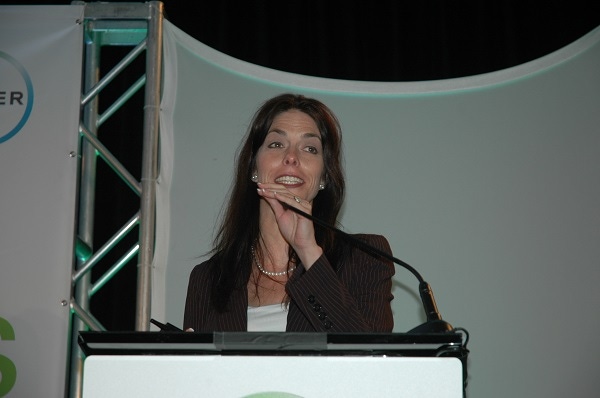
Julie Borlaug is challenging farm writers and broadcasters to expand their audiences, change their focus and engage consumers to offset some of the anti-GMO, anti-technology and misinformation rampant in the popular press.
Borlaug, granddaughter of Nobel Peace Prize winner Norman Borlaug, addressed the annual Bayer CropSciences Ag Issues Forum yesterday. That forum is an annual precursor to the Commodity Classic, held this year in San Antonio.
Borlaug has taken up some of her late grandfather’s work in international agriculture as associate director for external relations for the Norman Borlaug Institute for International Agriculture at Texas A&M.
If you are enjoying reading this article, please check out Southwest Farm Press Daily and receive the latest news right to your inbox.
She said her grandfather was “passionate and dedicated about feeding the hungry and miserable. He was a warrior against hunger.” Mostly he was a scientist, “who believed in the power of technology.”
She said that same spirit is needed today to take on the next challenge, providing enough food to feed more than 9 billion people in less than 40 years. “So, this is a call to action. We must explain how biotechnology is important for our future.”
Pay no attention to that man behind the curtain
That will require a better educational effort than we have employed in the past, she said. “We have been on the losing end of the argument and it’s time advocates of biotechnology do a better job. We have to be positive.”
Often, she said, consumers are confused about where their food comes from and how it’s grown. “And many believe we are exaggerating with dire predictions of food shortages.” She said much of the anti-technology language is a side issue to a more hearty anti-corporate sentiment.
She challenged ag journalists to use social media to tell the positive story of biotechnology. She mentioned Golden Rice and the destruction by vandals of research fields in the Philippines. Anti-technology voices, she said don’t understand the benefits. Golden Rice includes enhanced levels of vitamin A. Vitamin A deficiencies cause blindness in children, as many as 250,000 a year in developing countries.
“It may sound like an exaggeration, but anti-biotechnology forces are at least partly responsible for children going blind,” she said.
She also said anti-GMO proponents likely have never been on a farm and certainly not on a farm in Africa where mostly women rely on their own labor to feed their families. Biotechnology would make life easier for those women she said.
For now, many people—again, many women—in developing countries rely on manual labor to raise food. She said with more efficient agricultural production systems they would have time to improve their lives through education. Following education comes improves health care and new opportunities.
She mentioned a project in Rwanda where the Borlaug Institute evaluated resources and discovered coffee, but not grown commercially. By applying efficient production practices, the Institute was able to develop a viable coffee industry—from production to marketing. She said partnerships with USDA, USAID and private entities allow this and other projects to change lives.
Borlaug said “elitists” do not understand agriculture “and have never seen what hunger can do. They have never held a dying child in their arms. Hunger affects society.”
She also shares her late grandfather’s optimism. “With collaboration partnerships and technology, we can end poverty and hunger,” she said. “The Green Revolution resulted when countries and partners came together. Governments provided infrastructure and assistance to make it work.”
That challenge is greater today in Africa, she said, because governments are often unstable or corrupt. She said her grandfather’s biggest regret was that he “couldn’t save Africa.”
She implored ag journalists to continue the effort by communicating the essential role of technology, including biotechnology, to produce food for a growing world population.
“Biotechnology is not the single answer,” she said. It is part of a comprehensive program.
“Change your focus, change your message,” she said to journalists. “Be personal and emotional. Change to a softer message.”
She said the general population likely does not see typical farm and ranch publications. They do see social media.
Also of interest:
Farmers look to biotechnology to battle climate change
About the Author(s)
You May Also Like






